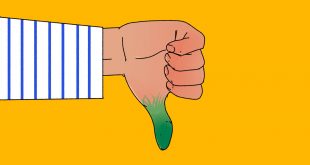
The claim: The falling pound has made the UK the world’s sixth biggest economy, down from fifth.
Reality Check verdict: The World Bank produces the rankings which are based on average exchange rates over the period. The UK has not fallen behind France so far.
Figures as diverse as Jeremy Corbyn, the Labour leader, and Lord Livingston, the former Conservative trade minister, have said the UK has slipped down the rankings and is now the sixth-largest economy in the world.
In an article in the Telegraph, former trade minister Lord Livingston wrote: “In the long term, this is unacceptable for the sixth-largest economy (it was the fifth largest, but the fall in the pound since June means we have fallen behind France).”
Sixth place would put the UK behind the US, China, Japan, Germany and France in US dollar terms, with France having leapfrogged the UK into fifth.
It is all down to exchange rates, in theory. If the pound is almost a fifth weaker against the US dollar since the EU referendum, our annual GDP of about £1.8 trillion is worth fewer dollars, dropping us down the table.
Newspapers were full of the news that the UK had slipped to number six after the vote to leave the European Union, pointing out that if you applied the weaker pound exchange rates to the output of the economy in 2015, France did indeed come out ahead of the UK. But that’s not how it works.
The World Bank produces the rankings. It takes official annual GDP figures and then converts them into US dollars using an average exchange rate for the whole year. The GDP figures for 2015 based on exchange rates from last year rank the UK at number five.
So will the slide in exchange rates move the UK down the World Bank’s table in 2016? It might.
Image copyright
Thinkstock
The Office for National Statistics published its first estimate of GDP figures for the third quarter of 2016 on Thursday morning, suggesting the economy grew 0.5%.
That means that GDP for the first nine months of the year was about £1.400 trillion.
Over the same period the average exchange rate was $1.3925, according to data from the Bank of England. So if we convert our GDP in pounds into US dollars that gives us a GDP of $1.949 trillion in the first nine months of 2016.
In France, GDP data for the third quarter came out on Friday morning, suggesting that French GDP was €1.641 trillion in the first nine months of 2016.
Convert that to US dollars at an average exchange rate, taken from the European Central Bank, of $1.1157 and France’s GDP on the World Bank measure is $1.831 trillion.
Still smaller than the UK. And indeed, UK GDP for just the third quarter was also bigger than French GDP using this method.
If the pound stays as weak as it is at the moment then France may overtake the UK in the full year.
But it makes no sense, as many people have done, to relegate the UK economy by adjusting 2015 GDP using current exchange rates.
‘Consumers worse off’
If France does overtake the UK, it will be a reflection of exchange rates rather than how much is being produced in the economy.
It is unlikely there has been a huge change in the amount the economy is producing since the EU referendum. The fall in exchange rates reduces its value in US dollar terms, but the substance of the economy hasn’t really changed.
Professor Diane Coyle, author of GDP: A Brief But Affectionate History, explains: “Making a judgement about international rankings based on one quarter of currency movement is not meaningful, although it has certainly made consumers worse off.
“There might well be a change in the future. The UK might fall below France in a meaningful way but we would see that in real changes, not just the currency movement.
“We would see jobs going abroad, businesses not getting investment, start-ups not getting funding. That’s when we might see a significant change in the GDP rankings.”
Purchasing power
Converting output into US dollars to rank economies may not be the best way to look at it.
As a World Bank analysis of the best way to compare economies puts it: “Exchange rate-converted GDPs can be highly misleading on the relative sizes of economies and levels of material well-being.”
Another way to approach the problem is to use a measure called purchasing power parity. This tracks prices across the world to adjust for the different prices we pay for the same things in different countries.
What that does is allow a fair comparison between countries that looks at the underlying size of economies without the numbers being warped by price or currency fluctuations.
On that measure, also produced by the World Bank, the UK was the ninth-largest economy in the world in 2015.
France was the 10th.
Based on the latest forecasts, the World Bank expects the UK to stay ahead of France for the whole of 2016, measured by purchasing power or by converting to US dollars.
 #Bizwhiznetwork.com Innovation ΛI |Technology News
#Bizwhiznetwork.com Innovation ΛI |Technology News



